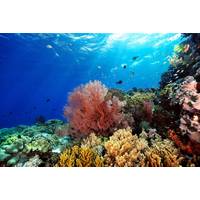
GFCR Greenlights $25M to Scale Up Coral Reef Resilience Efforts
(GFCR) has announced over $25 million in grant funding to boost resilience efforts across coral nations in the face of increasing threats to coral ecosystems.Announcements include a new blended finance programme for Egypt’s Red Sea, the Phillippines, Indonesia, the Mesoamerican Reef, Zanzibar and Tanzania.The new GFCR programme, Egyptian Red Sea Initiative, aims to increase the protection of one of the longest living and most resilient reef ecosystems in the world. Supported by a major funding commitment from USAID, this initiative, in partnership with the Government of Egypt and the United Nations
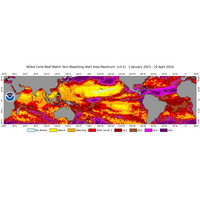
Coral Reefs Suffer Fourth Global Bleaching Event
; levels of bleaching in nearly half of surveyed reefs in the Great Barrier Reef Marine Park area.That makes this the fifth bleaching event in the Great Barrier Reef in just nine years - far more frequent than the twice per decade that scientists expected by the 2030s.Indian Ocean reefs off Madagascar, Tanzania, Kenya and the Seychelles have also suffered bleaching, though not as severely as in 2016 thanks to an early change in this year's monsoon leading to cooler conditions, Obura said."The stress experienced by corals in the region is likely less than it could have been, which is very lucky
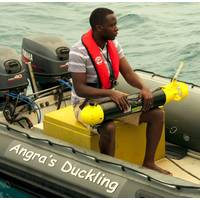
NOC puts Robots at the Center of Ocean Obs in Developing Nations
by the National Oceanography Center (NOC) is demonstrating how marine robots have the potential to transform ocean research for developing nations.The SOLSTICE-WIO program involved multiple partners in the Western Indian Ocean (WIO) and East Africa and engaged with regional researchers as well as six Tanzanian coastal communities. The program tested and assessed the potential and readiness of WIO nations to adopt autonomous technologies to meet its marine research priorities and ultimately increase capacity to help meet food security and ocean sustainability challenges.The project – which was designed
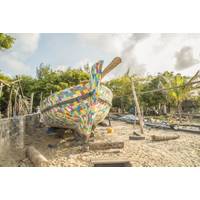
Boat Made of Flip-flops Sails for Cleaner Seas
local people's mindset on how they handle and dispose of waste."That's why we started this voyage - to reach out to communities in East Africa, and also globally," he said.The boat's voyage took it 500 km (311 miles) south from Lamu island in Kenya to Zanzibar in neighbouring Tanzania over two weeks starting on Jan. 23.Along the way the boat made six stops, with its crew joining local people, schools and officials for beach clean-ups and events highlighting the effect of plastic pollution on the seas.The motivation for boat-builder and fisherman Hassan Mohammed, 56, was seeing
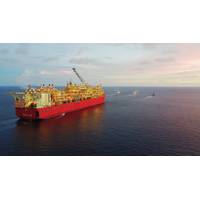
LNG Report: Floating Liquefaction & Regasification
as adviser by numerous clients in the offshore oil and gas sector. Jim has been advisor on planned FSRU projects in Ghana, Jamaica, India, elsewhere.George Tilley, senior researcher, is a 30+ year veteran of the international oil and gas industry having worked in Brazil, Kazakhstan, India and Tanzania for BG Group. In his last assignment in Tanzania George was responsible for the commercial arrangements with partners and government for the proposed LNG project. Our other senior analyst in the study has 30+ years of experience as offshore field development engineer in offshore oil and gas projects
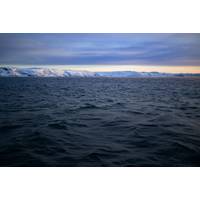
Statoil to Drill 5-6 Wells in Arctic Barents Sea in 2018
any large Barents Sea discoveries from the five wells drilled in the current year, it did make a small oil find, known as Kayak, and the exploration campaign had a positive overall value for the company, he added. Statoil's plans for 2018 also include at least three wells off Brazil, one off Tanzania, one or two onshore wells in Argentina and one onshore in Russia, Dodson said. He declined to give a number for the overall number of wells to be drilled globally by Statoil next year, but said the company's exploration budget would not change much from 2017. Separately, Statoil's
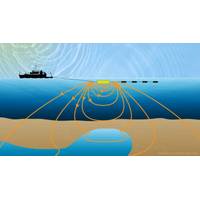
Fresh Water below the Seafloor?
once tapped. But if they are connected to terrestrial aquifers, they could represent renewable sources of fresh water.” A focus on New England Pools of subsea fresh water and brackish water (fresh water mixed with salt) have shown up thousands of miles from New England in places such as Tanzania and Indonesia, and as nearby as New Jersey, where an artesian freshwater spring sprang out of a borehole 60 miles offshore during scientific drilling in the 1970s. But only in recent years have scientists begun to focus on New England. In 2009, Lizarralde and colleagues from the United
Coral 'Bright Spots' Offer Clues to Protecting Threatened Reefs
in owning and managing fish stocks, while many also had deep waters near the reefs that fish could use as a refuge. "People invest in creative solutions when their livelihoods depend on it," Cinner said. The study also identified 35 "dark spots", from Jamaica to Tanzania, where there were fewer fish than expected. In many, fishermen used nets that could snag and damage reefs. They also had access to freezers, which gave an incentive to catch and store extra fish, depleting stocks. Another factor was that reefs with dark spots had recently suffered
Statoil Cancels Transocean's Rig Contract
of Mexico. Statoil was in the current environment unable to secure additional activity for the rig for the remainder of the contract period, ending in May 2016. “Discoverer Americas has been a very good performer for Statoil, contributing to test deep-water and ultra-deep water prospectivity in Tanzania, Egypt, and the Gulf of Mexico and appraising the multiple high-impact discoveries in Tanzania. All operations were performed with solid drilling efficiency and a good safety culture. Without additional activity lined up, we unfortunately have to let the rig go prior to contract end,”
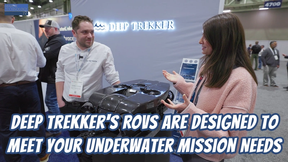
 December 2025
December 2025





